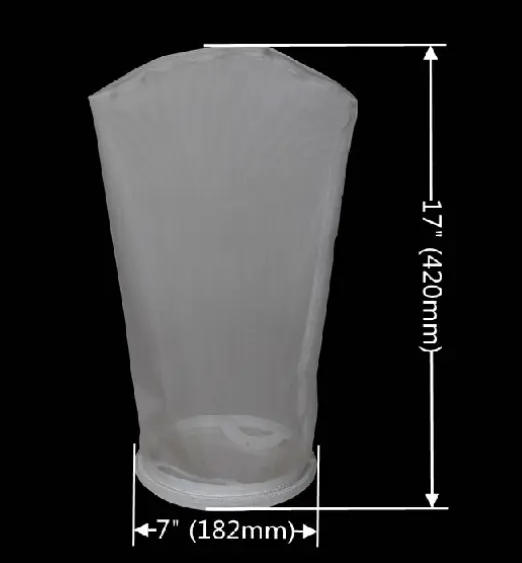Choosing the right filter bag is crucial for the effective operation of your industrial filtration system and ensuring your water or liquid purification meets its specific needs. The correct bag helps remove unwanted particles and microorganisms tailored to your application’s requirements.
Several key factors must be considered to select the ideal filter bag for your unique system.
Understanding the Industrial Filter Bag
As a common and efficient solution for filtering vast quantities of liquids, the filter bag is indispensable. Applications that demand the elimination of virtually all contaminants rely on the absolute filter bag. This type of bag features a precisely set pore size, ensuring it traps all particles at or above that dimension with high, proven efficiency. To illustrate, an absolute rating of 20 microns signifies that 99 percent of particles 20 microns or larger are removed during the initial filtration cycle.
Key Considerations for Filter Bag Selection
The following characteristics must be evaluated before you finalize your filter bag choice:
Particle Size and Micron Rating
The filter bag’s micron rating determines the smallest solid particles it can stop. You’ll encounter two ways to measure a filter’s effectiveness:
·Nominal Pore Size Rating: This refers to a filter that prevents an undefined percentage of particles larger than the stated pore size from passing through.
·Absolute Filtration: This rating ensures the retention of all particles at or above a specific pore size, typically at 99% efficiency.
Flow Rate and Viscosity
The speed at which the liquid passes through the filter, or the flow rate, is affected by the size of the filtering area, the material’s thickness, and the liquid’s viscosity (thickness). Using a bag that is too small or made of a material thicker than recommended can slow the flow rate significantly.
Pressure Limitations
Each filter bag is manufactured with a maximum operating pressure; surpassing this level can lead to damage. The key indicator for replacement or servicing is when clogging causes the pressure differential to reach 15 PSID (Pounds per Square Inch Differential).
Process Conditions
Your specific project requirements—such as necessary temperature resistance and the level of high-pressure regulation—are essential in selecting the right filter solution and determining the required sizing of the entire system.
Filter Media Types
Filter bags are used for filtering a wide range of liquids, including water, paints, food liquids, chemicals, and solvents. The basic media types are needle felts, woven monofilament meshes, and melt blown fabrics. Common filter materials include:
·Polypropylene
·Polyester
·Polyamide (nylon)
Filter Housing Compatibility
The filter housing is the casing that contains the filter bag. The type of application and the liquid being filtered will dictate the required housing material. Options for housing materials include:
·Stainless steel
·Carbon steel
·Aluminum
·Exotic alloys
·Plastic
By carefully evaluating these six factors—particle size, flow rate, pressure, process conditions, media type, and housing—you can select a filter bag that provides optimal performance for your industrial filtration system.
Locate the Industrial Filtration System Filter Bags You Need at Precision Filtration Products
Rosedale Products is your source for high quality filter bags and components. Our filter bags are designed to remove contaminants and debris from liquids based on their specific micron ratings. Contact us for more information regarding our filter bag options, check out our replacement filter bag, or learn more about Precision Filtration Products today!
Post time: Oct-29-2025




